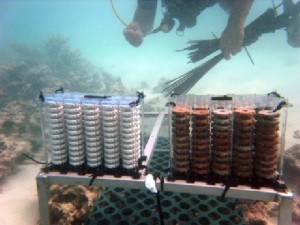 Few ideas are more absurd to me than this: because people refuse to cut back on beef consumption, catastrophic levels of methane are being released into the atmosphere each year. Even Forbes wrote in a recent report that cutting back on meat is one of the fastest ways we can slash our carbon emissions and slow down the pace of global warming.
Few ideas are more absurd to me than this: because people refuse to cut back on beef consumption, catastrophic levels of methane are being released into the atmosphere each year. Even Forbes wrote in a recent report that cutting back on meat is one of the fastest ways we can slash our carbon emissions and slow down the pace of global warming.
One cow produces up to 120kg of methane each year, and there are 1.5 billion of them on the planet. This is serious, because as we demonstrated in Giant Plumes of Gurgling Methane Could Fastrack Planetary Warming, methane is 21 times more efficient at trapping heat than carbon dioxide, and by 2050, livestock production is expected to double.
Epic emissions
The recent Forbes report pointed out that livestock production is a human invention that has never previously endangered the planet’s health. But now it has reached epic proportions. So epic that we produce more emissions by growing cows for food than the entire transportation industry combined.
At the same time, we have destroyed our planet’s ability to synthesize all of the extra carbon by clearing our forests. This coupled with exponential population growth (more cars and more cows) and government apathy, and we are heading straight for the tipping point of climate change that scientists warned we’ll hit if carbon emissions remain the same.
Here’s what I want to know: are we really ready to cause a mass extinction not only of humans but thousands of other species for the sake of burgers? Is beef so good that we can’t cut back? Naturally this oversimplifies the matter since global warming has many other causes, but breaking it down in this way does shed light on our self-destructive tendencies.
Two juicy burgers a week
The World Cancer Research Fund recommends that on average, people should eat no more than 11oz of beef a week. That’s the equivalent of two fat, juicy burgers. More than that, and the risk of bowel cancer increases along with a host of other health ailments. By contrast, people who eat a tiny amount of beef are rewarded with essential nutrients, including iron.
While the MENA region does not produce nearly as much beef as India, Brazil, China or the United States, awareness of the health and climate consequences has not been given priority in this region even as demand grows.
Recent research demonstrates how waistlines in the Gulf States in particular have been expanding since locals have taken a tragic liking to western-style fast food chains. Supply meets demand. Will we let it kill us?
Image credit: Cut of Prime Beef, Shutterstock
More on Meat:
Meat Glue: It’s Everywhere But We Don’t Know it
Meat Glue: The Food Industry’s Dirty Secret
420 Cow Brain Seizure in Egypt Deprives Local of Tasty Dish




just wondering if you can tell me, are these figures for all cows or grain fed? are the emission amounts different for pastured, grass-fed cows? since an unnatural grain diet causes stomach acidosis i would think that grain fed would produce more ’emissions’.